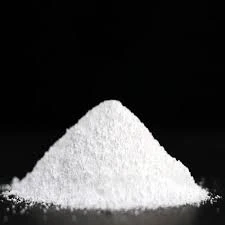The Role of API in Drug Manufacturing
Active Pharmaceutical Ingredients (APIs) are the vital components of drugs that produce the intended therapeutic effects. The process of drug manufacturing, which encompasses everything from the discovery of a compound to its market readiness, hinges significantly on the quality and efficiency of API production. This article delves into the importance of APIs in drug manufacturing, the challenges encountered during their production, as well as the innovations shaping their future.
Understanding APIs
APIs are the biochemical substances that cause the desired pharmacological activity in a medication. They differ from excipients, which are inactive substances used as carriers for the active ingredients. For instance, in a tablet, the API is the ingredient that provides the health benefit, while excipients may facilitate the drug's form, stability, and release.
APIs can be derived from various sources they may be synthesized through chemical processes in a laboratory, extracted from natural sources like plants and animals, or even produced using biotechnology techniques such as fermentation or recombinant DNA technology. The source and method of production can significantly impact the purity, efficacy, and safety of the final pharmaceutical product.
The Manufacturing Process
The manufacturing of APIs generally follows a sequence of stages research and development (R&D), process development, scale-up, and commercial production. The R&D phase involves the synthesis of the API in the lab and may include multiple iterations to refine the compound. Once a promising candidate is identified, the focus shifts to process development, where scientists aim to determine the most efficient and cost-effective methods for API production.
Scale-up involves transitioning from laboratory conditions to larger production facilities. This is a critical phase, as it tests whether a synthesis method can be scaled reliably while maintaining quality. Finally, commercial production involves producing large quantities of the API under strict quality control and regulatory compliance. This ensures that the APIs meet the standards set by regulatory authorities such as the U.S. Food and Drug Administration (FDA) or the European Medicines Agency (EMA).
Challenges in API Manufacturing
api in drug manufacturing

Despite advancements, the production of APIs is fraught with challenges. Quality assurance is paramount; any contamination can lead to significant clinical consequences. Thus, manufacturers implement stringent quality control measures, both during the production phase and in post-production testing.
Cost is another pressing issue. The synthesis of high-quality APIs often requires expensive raw materials and sophisticated technology. As a result, manufacturers are continually under pressure to reduce costs while maintaining compliance with regulatory standards.
Moreover, the complexity of modern drug formulations necessitates that API manufacturers adapt swiftly to changing regulations and guidelines, which can vary significantly across different countries. This adds to the operational burdens of API manufacturers who wish to market their products internationally.
Innovations Shaping API Production
In recent years, technological advancements have begun to revolutionize API manufacturing. Green chemistry principles are being integrated to develop more sustainable and environmentally friendly production processes. This not only helps reduce waste and energy consumption but also lowers the overall costs.
Additionally, the adoption of digital technologies, such as artificial intelligence (AI) and machine learning, aids in optimizing production processes and improving quality control measures. These technologies can predict potential failures in production lines, allowing manufacturers to mitigate issues before they escalate.
Finally, continuous manufacturing processes, as opposed to traditional batch processing, are being explored to enhance efficiency. Continuous manufacturing allows for real-time quality monitoring and can significantly reduce lead times from production to market.
Conclusion
Active Pharmaceutical Ingredients are integral to drug manufacturing, profoundly affecting the safety and efficacy of pharmaceuticals. As the industry continues to evolve, overcoming challenges such as quality assurance, cost management, and regulatory compliance will be crucial. Innovations in production technologies and methodologies promise to streamline API manufacturing, making quality pharmaceuticals more accessible in the global market. As the healthcare landscape changes, understanding the importance of APIs will remain essential for stakeholders across the pharmaceutical industry.

